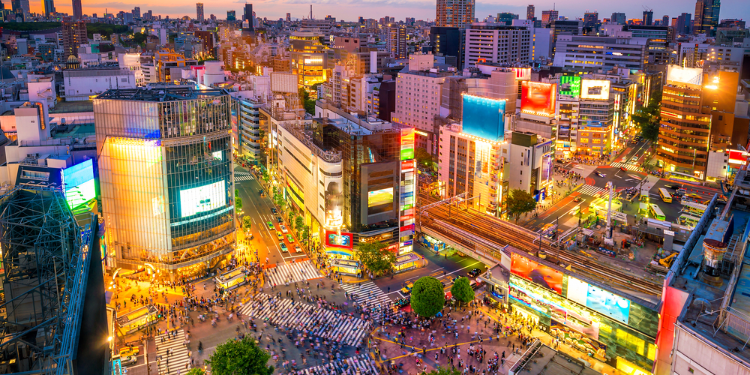
For more than a year, it has been assumed that the global health crisis would have a negative impact on international relocation. But it looks like Japan has reversed the situation. Ranking consistently as one of the world's most expensive countries (with a high cost of living in Tokyo, especially), Japan also stands out for its high expat packages. Is that supposed to be good news for foreign workers?
How Japan became an expat hotspot
Last July, ECA International, an international mobility expertise company, ranked the most competitive countries in terms of expat salary packages. This might be the right timing as countries worldwide are boosting their vaccination campaigns, faced with the threat of the Delta variant, to revive economic growth.
By definition, an expat package includes all the financial and material benefits offered by companies offering international transfers to their employees. Thus, unsurprisingly, it includes salary and any other benefit that can be negotiated between the company and the employee: various allowances (risk, mobility, cost of living, etc.), relocation, housing, transport, social security, training, language courses etc ., profits, and taxes. While these can be substantial advantages for the employee, therefore, and a cost for the company.
ECA acknowledges that it is difficult to compare expat packages as the definition of the same job can vary from one country to another. Still, it assessed new post-lockdown salary trends. Japan is ahead of the UK with an average salary of $ 86,271, $ 143,354 with benefits (bonuses and various allowances provided by the employer), and $ 175,960 of taxes (total expat package: $ 405,585) -- which makes it the most expensive country for foreign companies wishing to transfer their employees. The UK thus comes in second with an expat package of $ 404,405, while India offers a package of $ 318,596. Japan was already popular with expats before the health crisis, but in 2021, Tokyo was offering an average salary of around $ 3,000 a month (according to Nikkei) -- one of the highest salaries worldwide. The country remains the 3rd world power, boosted by its investments in robotics and advanced technologies.
A country driven by its cutting-edge sectors
Despite the global crisis caused by the pandemic, many sectors have remained competitive and even increased their market shares. As a country specialising in robotics and technological innovation, Japan is growing thanks to its cutting-edge markets. This is indeed good news for expatriates who are already there or planning to work in Tokyo -- this city offers the highest wages. Thus, in 2021, an executive in the banking sector earns, on average, more than $ 100,000 annually. Although under pressure, the health sector is also experiencing a salary increase, with nearly $ 100,000 per year for a qualified and skilled doctor. The new technological and cutting edge innovation sectors (automation, robotics, artificial intelligence, engineering, etc.) are also highly competitive, with average salaries of up to $ 100,000 annually (according to figures from linkajapancareers and careersaddict). Some of the leading industries in Japan are Fanuc, Yaskawa, Toyota, Sony, Shiseido. The country has established itself as one of the world leaders in automation and innovation.
A more contrasted reality for blue-collar jobs
In Japan, however, high wages are contrasted with a high cost of living. And the pandemic has made the situation worse. Still, Japan is keeping a low inflation rate (0.5%) compared to the United States and Europe. Despite optimism for 2022, the Bank of Japan recently announced a decline in GDP (-1.3% in the first quarter of 2021). With the new Covid-19 surge, the slight economic upturn in 2020 has almost been overlooked. Besides, the Olympic Games did not have the expected impact. Japan relies on its exports, with an average increase of over 40% (July 2021). But this healthy increase does not counter the impact of the health crisis. The Japanese borders remain closed, affecting international relocation plans. As of September 23, 56% of the population had already been fully immunised against Covid-19, and 68% had received at least one dose. Nevertheless, the high salaries mask an uninspiring daily life, especially for expatriates who do not work in high-tech sectors. According to Nikkei, foreign blue-collar workers earn only 70% of the average Japanese salary. The health crisis has weakened some of the strongly competitive sectors (catering, food retail, etc.). Working conditions for part-time workers have become more precarious compared to full-time employees. A rise in wages has been requested.
With the departure of Prime Minister Yoshihige Suga, Japan is entering a new period of uncertainty. For expatriates, the reopening of borders will be decisive for the Japanese labour market. While vaccination is constantly on the rise, economic lobbies are campaigning for a reopening of borders. The Keidanren, Federation of Japanese Economic Organizations, made an appeal to the government on September 6. Based on the excellent response to the vaccine (12% of the population fully vaccinated in July and 56% to date), Masakazu Tokura, spokesperson for Keidanren, pleads for an essential balance between measures for containing the pandemic and socio-economic activities ”. The Federation is thus requesting authorisation for the entry of both vaccinated (exempt from quarantine) and non-vaccinated travellers (with quarantine). Former Prime Minister Suga, who was said to be open. But it's unsure whether negotiations will resume with the future Prime Minister. The Liberal Democratic Party (PLD) will elect Suga's successor on September 29.



















